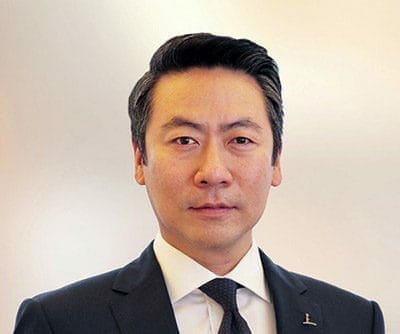
CapitaLand’s Lucas Loh sees opportunity in China’s mountain of maturing debt
CapitaLand announced today a $556 million first closing of its inaugural discretionary real estate debt fund, as Chinese property developers seek to refinance over $41 billion in debt during the first half of 2019.
The fund, named Credo 1, has a target capitalisation of $750 million and will invest in offshore US dollar-denominated subordinated instruments for real estate in China’s first and second-tier cities, according to an announcement by the Singaporean real estate giant.
Focusing on loans and securities backing commercial, retail, residential, logistics and industrial properties, CREDO 1 is managed by CapitaLand Investment Management, the group’s fund management division.
Refinancing a Slice of China’s Mountain of Real Estate Debt
“CREDO I China comes at an opportune time as a significant volume of China’s commercial real estate loans are due for refinancing within the next few years; while bank regulatory changes and deleveraging measures have tightened the amount of credit available to borrowers, prompting them to turn to non-bank lenders,” Lucas Loh, CapitaLand’s President for China and Investment Management said in a statement. Loh added that the company will leverage its existing China operation and network to opportunities in quality property debt instruments for the fund.
The group expects to receive subsequent commitments from major institutional investors later this year with CapitaLand set to maintain a 10 percent stake in the vehicle. The company declined to reveal the identities of other investors in the fund at this juncture.
CapitaLand which is the largest real estate manager in Asia Pacific and ranked 13th globally based on total real estate assets under management, according to ANREV, currently manages 15 private equity funds, which focus primarily on direct investment in property projects.
Assembling a Debt Strategy in Six Months

CapitaLand Investment Management’s James Lim is staying away from loan to own
“This fundraise demonstrates the growth in demand for real estate finance fund targeting mezzanine debt and other subordinated instruments through the origination of financing for high-quality properties in major markets across China,” James Lim, CEO of CapitaLand Investment Management in the statement.
Formerly with HSBC, Lim joined CapitaLand to lead their fund management division in October 2017, and began assembling a team of debt specialists in the third quarter of 2018.
Former Credit Suisse director Arjun Pandit joined CapitaLand Investment Management from the investment bank during the third quarter of last year and the debt fund which has been established since Pandit’s arrival is now expected to make its first investment in the first half of 2019.
Aiming for Fixed-Income Returns
While distressed debt is gaining attention amid China’s tightening credit environment, CapitaLand fund’s managers are said to be steering away from a loan to own strategy and wooing investors with a fixed-income approach rather than aiming for equity levels of return and risk.
The CREDO fund is looking for opportunities to fill a vacuum created as banks have been increasingly restricted in their ability to provide mezzanine loans in China at the same time that capital rates on core assets have fallen to around three percent in top markets.
Rather than focus on providing mezzanine financing to small to mid-sized developers to support specific projects, the CREDO vehicle plans to lend a large chunk of its capital to financial institutions and private equity firms, instead of channeling investment directly into corporate bonds.
Debt Comes into Style
With China’s real estate industry, or more specifically the country’s developers, facing slower sales at the same time that more than RMB 385 billion worth of developer-issued dollar bonds, alongside close to four times as much RMB-denominated debt matures in 2019, an array of private equity firms, developers and other institutions are aiming to profit from the financial event.
In an interview published in the Financial Times this month Khoon Ng, chief executive of Country Garden affiliate Paladin Asset Management, which last year set up a new $1 billion special situations fund targeting distressed real estate opportunities, outlined a strategy by which the asset manager was investing in debt, not only for the interest, but with an eye to building its real estate portfolio.
Ng told the newspaper that, “When we buy up the distressed debt of [a] small developer, we are often taking over an entire small developer…It’s another way for them to buy land but we do the dirty work for them.”
In a seemingly parallel strategy, warehouse developer since the middle of 2018 made a pair of short term loans to Beijing Vantone Real Estate, before buying a 10 percent in the developer, which was struggling to cope with a 46 percent year on year drop in cash flow.
Also in pursuit of China real estate debt opportunities is Warburg Pincus, which in December said it would establish a $5 billion special situations fund. More quietly, Blackstone, and Goldman Sachs, in conjunction with a number of other foreign investors, have picked up 20 distressed mainland debt portfolios over the last year and half worth a cumulative $1.5 billion, according to PWC.
Michael Cole provided additional research for this story
Leave a Reply